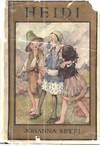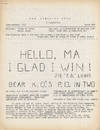
SEMANTIC ANTICS: How and Why Words Change Meaning
by Steinmetz, Sol
- New
- Hardcover
- first
- Condition
- New/New
- ISBN 10
- 0375426124
- ISBN 13
- 9780375426124
- Seller
-
Los Angeles, California, United States
Payment Methods Accepted
About This Item
Synopsis
"My favorite popular word book of the year"-William Safire, NY Times 6/22/2008A fun, new approach to examining etymology!Many common English words started out with an entirely different meaning than the one we know today. For example:The word adamant came into English around 855 C.E. as a synonym for 'diamond,' very different from today's meaning of the word: "utterly unyielding in attitude or opinion."Before the year 1200, the word silly meant "blessed," and was derived from Old English saelig, meaning "happy." This word went through several incarnations before adopting today's meaning: "stupid or foolish."In Semantic Antics, lexicographer Sol Steinmetz takes readers on an in-depth, fascinating journey to learn how hundreds of words have evolved from their first meaning to the meanings used today.From the Hardcover edition.
Reviews
(Log in or Create an Account first!)
Details
- Bookseller
- Joe Staats, Bookseller
(US)
- Bookseller's Inventory #
- 11990
- Title
- SEMANTIC ANTICS: How and Why Words Change Meaning
- Author
- Steinmetz, Sol
- Format/Binding
- Hardcover
- Book Condition
- New
- Jacket Condition
- New
- Quantity Available
- 1
- Edition
- 1st Edition 1st Printing
- ISBN 10
- 0375426124
- ISBN 13
- 9780375426124
- Publisher
- Random House Reference
- Place of Publication
- New York, New York, U.s.a.
- Date Published
- 2008
- Pages
- 288
- Size
- 8vo - over 7¾" - 9¾" tall
- Keywords
- Word Lists
Terms of Sale
Joe Staats, Bookseller
About the Seller
Joe Staats, Bookseller
About Joe Staats, Bookseller
We specialize in collectible, contemporary signed first editions. First edition means the first printing. (Later printings of the first edition are typically not printed on acid-free paper, and should be avoided by collectors.) Signatures are obtained by us in person. Inscribed books sold by us may contain a line, a phrase, or a sketch that the author has chosen to add. Our signed books are not dedicated to anybody in particular (not to your grandmother, your Aunt Gladys, your ex-lover or your former cellmate), except in the rare case of a presentation copy from an author to a noteworthy person. All our books are hardcover, unless the book is an Advance Reading Copy, Uncorrected Proof, or PBO. You can expect that the books we send you will be as described, and in a physical condition worthy of the author’s having signed them. We do not sell remainder-marked books, signed or otherwise
Glossary
Some terminology that may be used in this description includes:
- First Edition
- In book collecting, the first edition is the earliest published form of a book. A book may have more than one first edition in...
- New
- A new book is a book previously not circulated to a buyer. Although a new book is typically free of any faults or defects, "new"...
- Jacket
- Sometimes used as another term for dust jacket, a protective and often decorative wrapper, usually made of paper which wraps...

